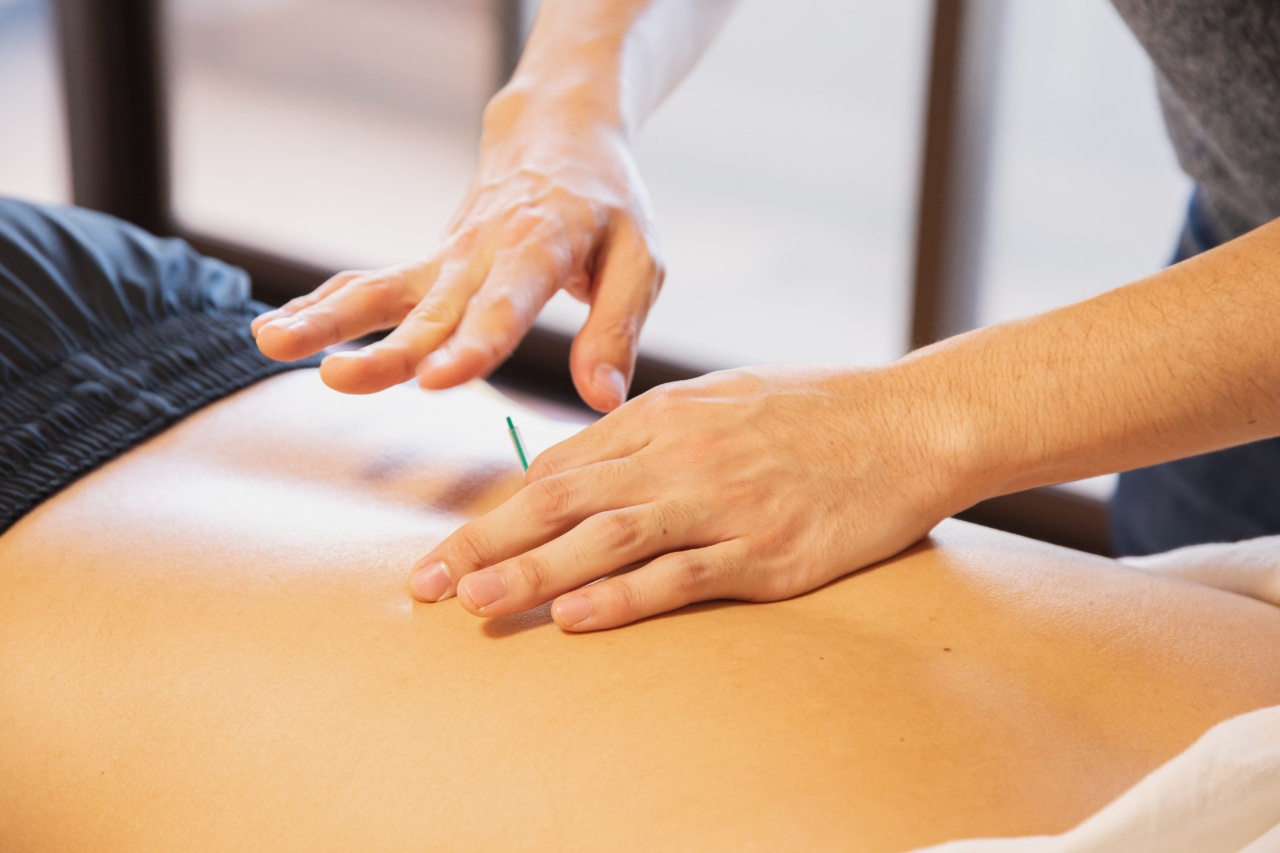Acupuncture is a traditional Chinese medicine practice that involves the insertion of thin needles into specific points on the body.
While acupuncture is commonly associated with pain relief for various conditions, it can also be an effective alternative therapy for dental pain. This article explores the use of acupuncture as a natural and holistic approach to managing dental pain.
Understanding Dental Pain
Dental pain can occur due to various reasons such as tooth decay, gum disease, tooth sensitivity, or dental procedures. It can range from mild discomfort to severe, debilitating pain.
Traditional treatments for dental pain often involve medication and invasive procedures, which may not be suitable for everyone. Acupuncture, on the other hand, offers a drug-free and minimally invasive alternative.
How Does Acupuncture Work?
According to traditional Chinese medicine, acupuncture works by balancing the flow of energy, known as qi, in the body. The body has various meridians, or energy pathways, and acupuncture points are specific locations along these meridians.
By inserting needles into these points, acupuncturists aim to restore the balance of energy and promote healing.
Acupuncture for Dental Pain
When it comes to dental pain, acupuncture can be used as a complementary therapy to conventional dental treatments or as a standalone treatment for milder cases.
Several studies have shown that acupuncture can effectively alleviate dental pain by reducing inflammation, increasing blood flow, and triggering the release of natural pain-relieving substances in the body.
Benefits of Acupuncture for Dental Pain
1. Drug-Free Pain Relief: Acupuncture provides a natural alternative to pain medications, which may have side effects or be contraindicated for certain individuals.
2. Minimally Invasive: Unlike invasive dental procedures, acupuncture involves the gentle insertion of thin needles, making it a less intrusive option for those who prefer non-surgical approaches.
3. Holistic Approach: Acupuncture takes into account the overall well-being of the individual, aiming to address the root cause of dental pain rather than just treating the symptoms.
4. Relaxation and Stress Reduction: Acupuncture sessions can promote relaxation and reduce stress, which can have a positive impact on overall dental health.
What to Expect During an Acupuncture Session
During an acupuncture session for dental pain, the acupuncturist will first conduct a thorough assessment of the patient’s dental health and overall well-being.
Based on the findings, the acupuncturist will select specific acupuncture points that correspond to the dental condition and place thin needles at those locations.
The needles are typically left in place for around 20 minutes while the patient rests comfortably. Some individuals may experience a tingling or dull sensation at the insertion sites, while others may not feel any sensation at all.
Each session may vary in the number of needles used and the duration of treatment.
Effectiveness of Acupuncture for Dental Pain
Several studies have demonstrated the efficacy of acupuncture for managing dental pain. One study published in the Journal of Dentistry showed that acupuncture reduced postoperative pain and analgesic consumption in patients undergoing dental surgery.
Another study published in The Journal of Alternative and Complementary Medicine found that acupuncture significantly reduced pain and swelling in patients with temporomandibular joint disorders.
Precautions and Considerations
While acupuncture is generally safe, there are a few precautions to keep in mind when considering it as a therapy for dental pain:.
1. Choose a Qualified Practitioner: It is essential to seek acupuncture treatment from a qualified and licensed acupuncturist with experience in dental pain management.
2. Inform Your Dentist: If you decide to pursue acupuncture for dental pain, inform your dentist about your intentions. They can provide guidance and ensure that your dental treatment plan aligns with the acupuncture therapy.
3. Individual Variations: Acupuncture may have varying effects on different individuals. It is important to keep an open line of communication with your acupuncturist to modify the treatment plan if necessary.
Conclusion
Acupuncture offers a promising alternative therapy for dental pain, providing drug-free pain relief, a minimally invasive approach, and a holistic perspective on dental health.
By restoring the flow of energy in the body, acupuncture can effectively alleviate dental pain and promote overall well-being. However, it is important to consult with a qualified acupuncturist and inform your dentist before pursuing acupuncture as a complementary or standalone treatment for dental pain.





























